Treasure hunting with the ROC Diggers
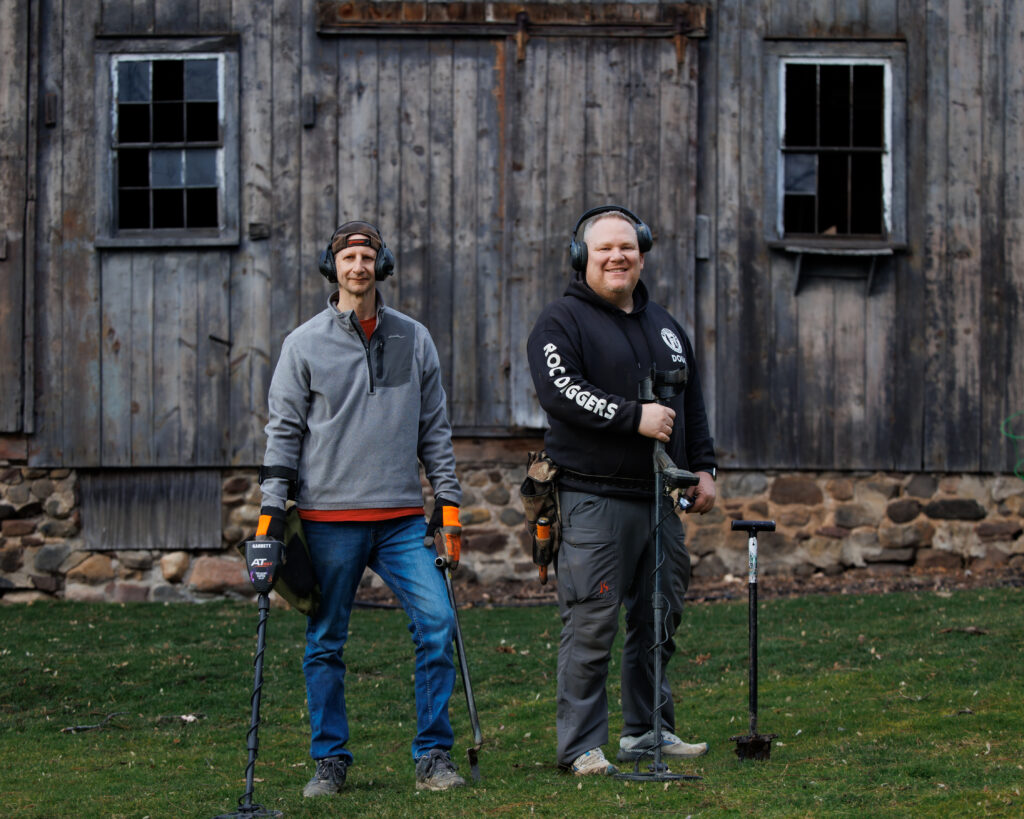
Good friends Doug Craven and Steve Schalabba have pretty incredible day jobs. Craven is a kindergarten teacher with the Rochester City School District (Pinnacle School No. 35), and Schalabba is the Monroe County fire coordinator. When they’re not at work, the two share an equally amazing hobby—exploring historic properties with metal detectors in search of hidden treasure and lost history.
Together, the duo heads up ROC Diggers, a small group of metal-detecting enthusiasts who share a passion for “responsible detecting.” Through always obtaining proper permissions, respecting archaeological sites, and adhering to local regulations and laws, the friends prioritize the preservation of historical and cultural artifacts while minimizing any negative impact on the environment. And they’ve managed to uncover some remarkable discoveries along the way.
I first met Craven and Schalabba a couple of years ago after sending them a message on Instagram asking if they’d be interested in metal detecting on my 1856 property. Fast forward through many coins, nails, and tractor parts later, I’ve lost count of the treasures they’ve unearthed in my backyard. They truly have a knack for discovering hidden treasure, which prompted me to sit down with them to find out what fuels their passion.
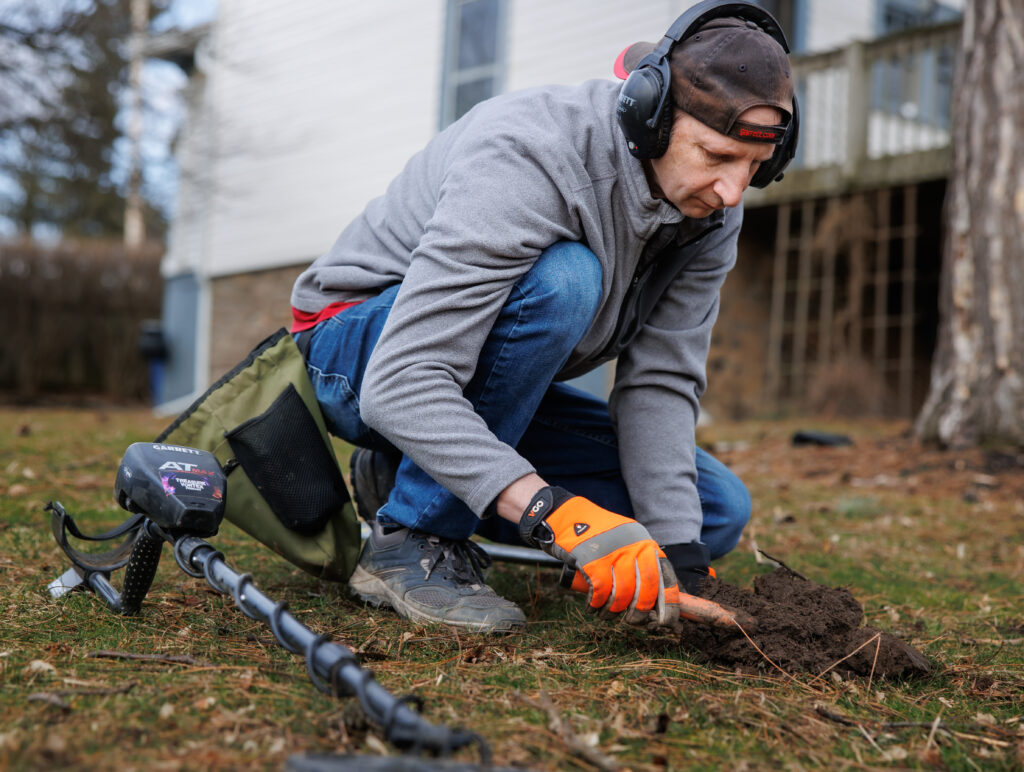
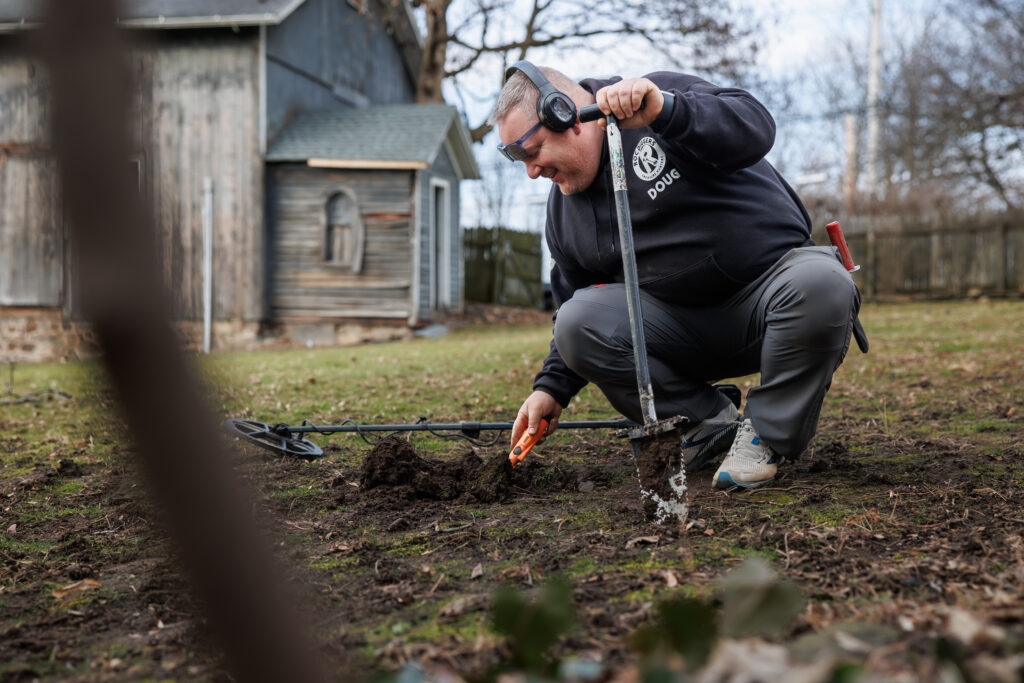
How did you get started with metal detecting?
Craven:
When I was growing up, I wanted to be like Indiana Jones—my college minor is even in anthropology. I really enjoyed learning about other cultures by watching National Geographic’s Mel Fisher, and then when the show Oak Island came out, I was like, that’s it, I’m going to get a metal detector.
Schalabba:
I’ve collected coins my whole life. Doug and I are neighbors, so I bought a metal detector to join him. It started off with us and a few friends going into the woods to see what we could find, but it’s evolved into so much more. It’s truly a passion of ours—finding new objects and researching the history behind those objects.
Doug, how has your background in anthropology influenced ROC Diggers’ approach to metal detecting?
Craven:
We never go onto someone’s land without their permission. It’s also heightened my awareness of the need for responsible detecting practices so that we respect and preserve the historical and cultural heritage of the areas we explore. But mostly it’s deepened my passion for research; what excites me the most is finding something that connects the land back to the property owner or history of the house.
What are some of your favorite finds and experiences?
Craven:
I like finding old coins from the 1800s, but we find things from horseshoes to nails to old doorknobs, and everything’s exciting. [I enjoy] being able to open the ground and seeing what’s down there— everything I find is like a present.
[The late] Bill Gratwick invited us to dig Linwood Gardens, a beautiful home overlooking the Genesee Valley. They were eager for us to find something that tied the land back to their family. I found the most amazing thing: a livestock brand with initials WHG, for William Henry Gratwick. I love finding things that tie the history, family, and property all together.
Schalabba:
I also like the coins the best, and it’s fun finding different relics and typical “treasure hunt” items like old skeleton keys, buttons, and thimbles. I’ve found Civil War buttons with writing on them, allowing me to tie them back to specific war generals who’ve lived at that specific property.
The Wadsworth Family from Livingston County allowed us to explore their property. They have thousands of acres of land. We found a Zippo lighter with initials inscribed on it. When we handed it to the property owner, Billy Lloyd Wadsworth, he couldn’t believe it—it was his grandfather’s lighter. To be able to give him something of such sentimental and family significance was amazing.
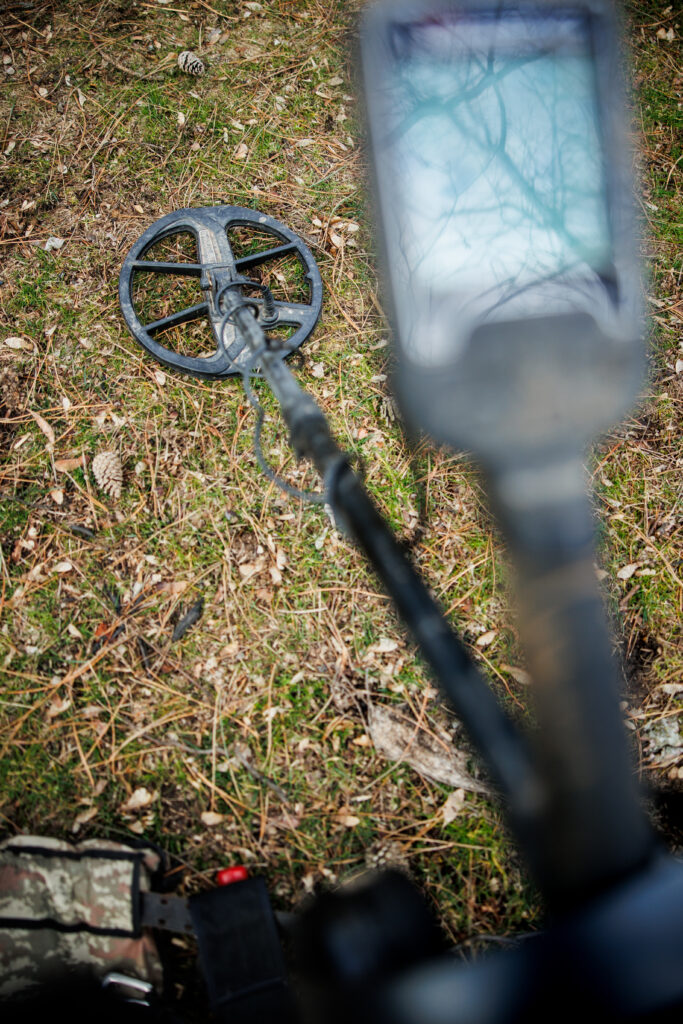
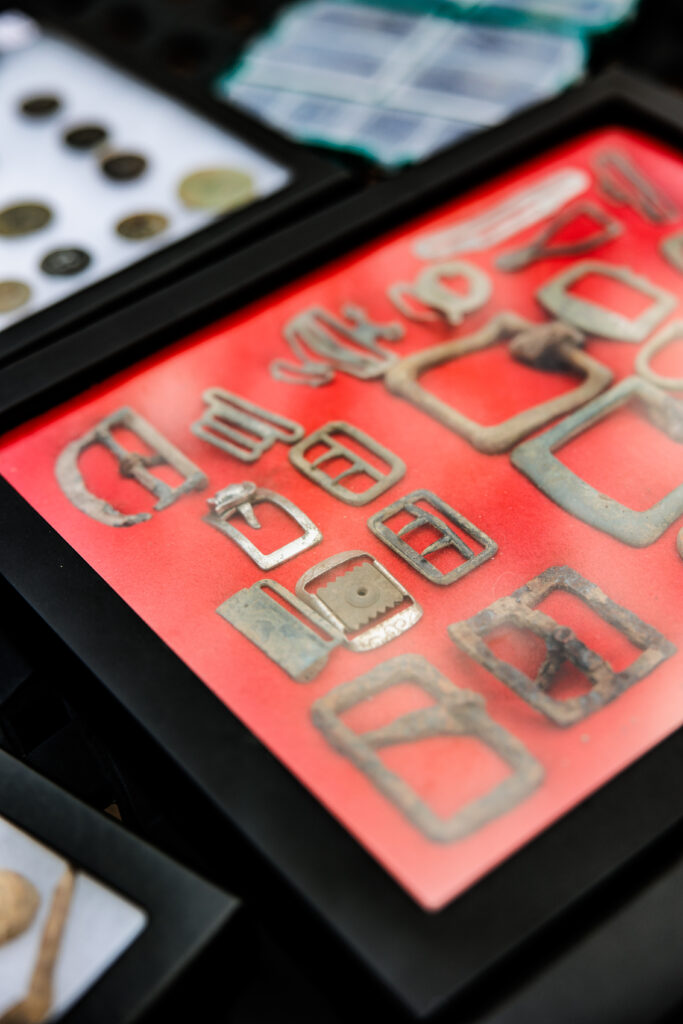
How do you go about researching the items you find?
Schalabba:
We have a close relationship with our local Fairport historian, Bill Poray. He’s helped us close the loop on many of our finds through collaboration and research. For example, a few months ago we dug up dog tags in the front yard of a Fairport Village home. Bill helped us find a picture from the 1940s of a girl standing in front of that house holding a dog wearing the tags.
Where are your favorite places to go metal detecting?
Craven:
It’s great when we can find an old house property, and I also enjoy the exercise I get when we walk old farm fields.
Schalabba:
I found an 1819 large cent coin a few weeks ago in a huge open farm field. Looking on a map we noticed there used to be buildings on the land, even though there’s no trace of them now. So older historical home sites for sure, but I also enjoy exploring previous home sites where people lived for generations but there’s no aboveground evidence of them anymore.
What challenges do you face while metal detecting?
Schalabba:
Definitely the weather, but also asking permission from homeowners. Instagram has helped open a few opportunities, but we need to get better at knocking on doors and just asking.
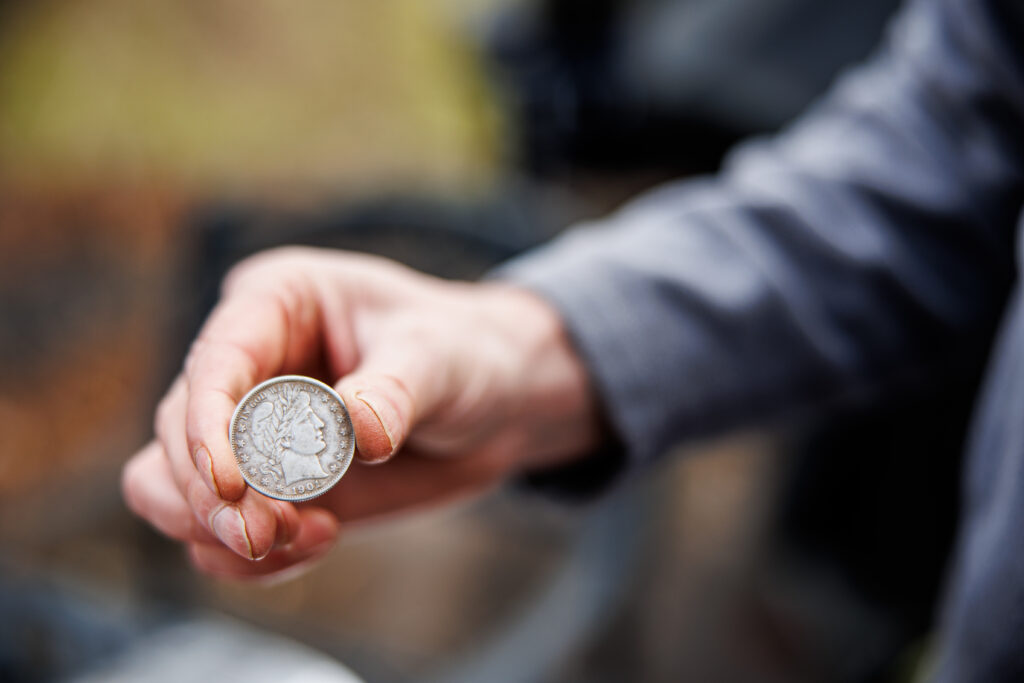
Any historical periods or events that particularly fascinate you?
Craven:
Right now, we’re really into the Sullivan-Clinton Expedition from 1779. They came through this area, so it’s exciting to find a relic like a musket ball and trace it back to the Revolutionary War.
What do you do with the items you find?
Craven:
We always return items to the homeowners. One time as we were metal detecting down in Geneseo, a woman came up to us and asked us to check out her property next door. She told a story from her childhood where a little boy proposed to her with his grandmother’s ring, and unfortunately, she ended up losing it. We looked around for about five minutes before we found it. She was ecstatic. It was missing for almost fifty years!
What advice do you have for someone looking to get started?
Schalabba:
Have patience, research before you start (there are a ton of YouTube tutorials out there), and invest in a good machine. And don’t be shy about reaching out with questions; everyone in the hobby is very supportive and willing to help!
Interested in having your property explored by the ROC Diggers? Find them on Instagram, @ROC_Diggers_Metal_ Detecting.
Views: 69



